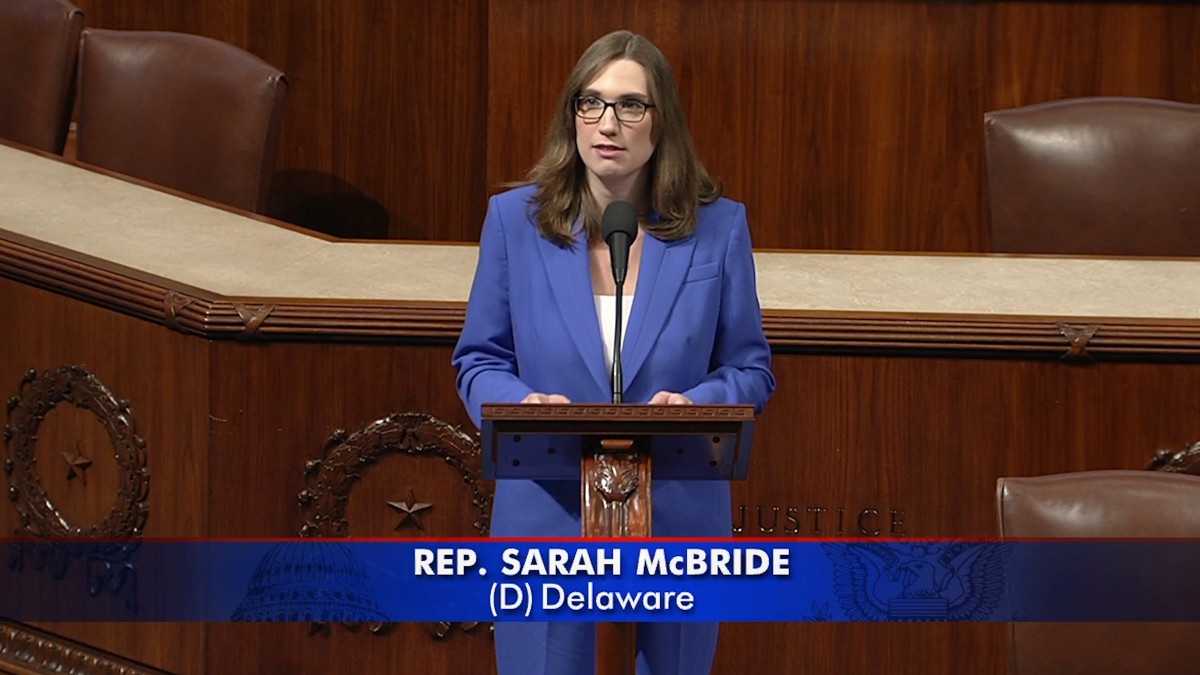Rep. McBride Applauds House Passage of ANCHOR Act to Protect Delaware’s Coastal Research

WASHINGTON, D.C. — Today, the U.S. House of Representatives passed the ANCHOR Act, bipartisan legislation to enhance cybersecurity and telecommunications for the U.S. Academic Research Fleet, including the University of Delaware’s Hugh R. Sharp, Delaware’s flagship oceanographic research vessel. Congresswoman Sarah McBride (D-DE), a cosponsor of the bill, delivered remarks on the House floor ahead of the vote.
“I rise today in support of the ANCHOR Act — a bipartisan bill to protect American maritime research and strengthen our national security,” said Rep. McBride. “The University of Delaware’s research vessel, the Hugh R. Sharp, is a floating lab used by scientists and students to study everything from our ocean health, to fisheries, to coastal storms — all of this happening right off the coast of Delaware.
The Accelerating Networking, Cyberinfrastructure, and Hardware for Oceanic Research (ANCHOR) Act directs the National Science Foundation (NSF) to develop a comprehensive plan to modernize the cybersecurity and communications infrastructure aboard ARF vessels.
McBride highlighted the urgent need for upgrades on vessels like the R/V Sharp, which are vulnerable to cyberattacks from hostile foreign actors seeking to target sensitive maritime and national security research. The R/V Sharp supports not only UD scientists and students but also researchers across the Mid-Atlantic.
“But right now, ships like the Sharp are running on outdated technology — and that makes them sitting ducks for cyberattacks from hackers and foreign adversaries,” McBride warned.
The bill passed with bipartisan support and requires the NSF to report to Congress within one year of enactment. The University of Delaware praised the bill:
"The University of Delaware's R/V Sharp, a member of the U.S. Academic Research Fleet (ARF), is an asset to UD and institutions across the Mid-Atlantic region,” said Fabrice Veron, Dean of the College of Earth, Ocean and Environment at University of Delaware. “This research vessel enables scientists and students to explore and sample the coastal ocean as they conduct research in a variety of marine disciplines including biogeochemical processes, acoustics, marine mammal and fisheries research, and more. Cybersecurity and connectivity are critical to the fleet's science mission, including conducting complex ocean research and supporting naval tactical operations. Continued telecommunications improvements would allow the fleet to maintain and expand expertise in emerging blue technology in Delaware and around the world."
To support the R/V Sharp’s mission, Rep. McBride has also submitted a $1.5 million Community Project Funding request to NOAA to support Phase Two of mid-life maintenance and upgrades for the R/V Sharp. The investment would extend the vessel’s life by 10–15 years, ensuring safe, reliable operations and experiential education. Continued investment will protect a vital national asset, bolster Delaware’s leadership in ocean science, and support sustainable stewardship of marine resources essential to the state’s economy and environmental resilience.
“Protecting the Sharp - and our entire Academic Research fleet, helps Delaware track sea level rise and protect our coastal communities — a big deal for the lowest-lying state in the nation,” McBride continued. “That is why I’ve submitted a $1.5 million funding request to NOAA to make sure the Sharp gets the upgrades it needs.
###
